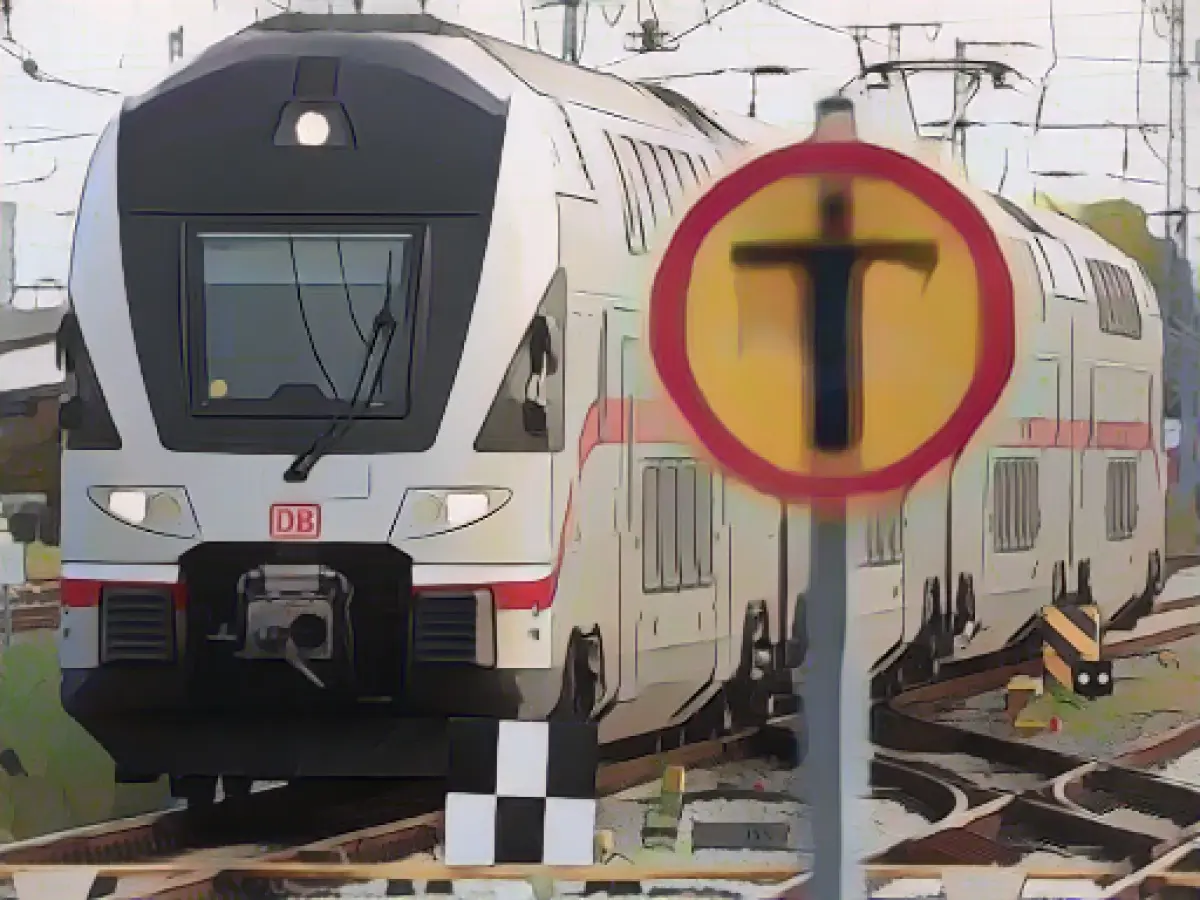Germany faces a winter of strikes on the railroads
Following the failure of the wage negotiations between the train drivers' union GDL and Deutsche Bahn, there will be further warning strikes on the railways. GDL boss Claus Weselsky left no doubt about this on Friday: "Now that we have caused the negotiations to fail, we will put further pressure on the employer with warning strikes." The union boss left the details open.
The GDL can call temporary warning strikes at any time. The union is currently seeking the approval of its members for longer strikes, which may even be indefinite. The ballot has already begun.
When will the next warning strike take place?
That remains to be seen, Weselsky did not give a date on Friday. "We will inform the public in good time when these will take place," he simply said. "We see no possibility of finding compromises with this employer and we deeply regret that we have to continue to affect passengers, the customers of Deutsche Bahn," Weselsky continued.
How long can a warning strike last?
That is difficult to say in detail. But one thing is certain: warning strikes, unlike strikes, must be limited in time. The duration of the strike must also be proportionate to the demands or the negotiation situation - this leaves a lot of leeway in the details. If a labor court determines that the strike is not proportionate, a warning strike can be prohibited.
It is therefore not possible to say exactly up to what length a warning strike is deemed appropriate and it also depends, for example, on how many members are called to strike. A nationwide 50-hour warning strike on the railways, as planned by the transport union EVG in May, is probably at the limit of what is feasible.
What is the likely impact of the next warning strike?
That depends on which members the GDL specifically calls for a work stoppage and how large the strike participation is. With the nationwide call last week, the union forced Deutsche Bahn to cancel a good 80 percent of long-distance services. The impact on regional services was even greater in some cases, with virtually no trains running in some regions at times.
If the GDL only calls individual occupational groups or employees in individual federal states to go on warning strike, the effects are more difficult to assess. It is also conceivable that the GDL could strike in a different part of the country from day to day - the possibilities for the union in this respect are manifold.
Experience has shown that many employees are organized in the GDL, particularly in the eastern German states, as well as in the southwest. The GDL also has many members in Stuttgart and Frankfurt. In other regions, such as northern Germany, the GDL is not as strongly represented among DB employees.
What happens to tickets already purchased during a warning strike?
During the last warning strikes, Deutsche Bahn canceled the train binding of tickets so that customers could bring forward their journey or make it up on another day. Anyone who did not want to travel at all due to a train being canceled could have the entire ticket price refunded. As a rule, Deutsche Bahn also sets up a strike hotline for all customer queries.
When can the GDL call an indefinite strike?
The result of the strike ballot must be available. "We don't yet know exactly whether we will be able to count the votes immediately before Christmas or after Christmas," said Weselsky. For indefinite strikes, Weselsky needs the approval of 75 percent of those taking part in the ballot.
This procedure ensures that the strike is supported by a broad majority of union members - after all, they are threatened with considerable loss of income in the event of a long strike.
It remains to be seen whether Weselsky will actually call an indefinite strike once the result is known. It is more likely that the GDL boss will then also set a precise period for the industrial action. However, he will no longer have to follow the stricter rules for a warning strike.
Will strikers receive money for the period of industrial action?
If you go on strike, you must expect your employer to reduce your pay accordingly. However, the trade unions pay strike pay for indefinite strikes following a ballot. However, this does not usually compensate for the loss of income on a one-to-one basis. According to its own statement, the GDL also pays strike pay in the event of warning strikes - the regulations vary greatly from union to union.
- The ongoing railroad strikes could potentially lead to significant traffic disruptions for consumers, as Deutsche Bahn may need to cancel various services due to the walkouts.
- The German railroad workers' union GDL is currently conducting a ballot to determine whether they have enough support among their members to call an indefinite strike, which could result in tariffs being imposed on affected services.
- Claus Weselsky, the head of GDL, warned that if the negotiations with Deutsche Bahn fail, they may call for a warning strike to put more pressure on the employer, despite the potential impact on railway traffic and consumers.
- Tariffs could potentially be implemented if the GDL calls for an indefinite strike, with the union seeking approval from 75% of their members in a ballot before initiating industrial action, which may impact ticket prices for passengers during the strike period.
Source: www.dpa.com








